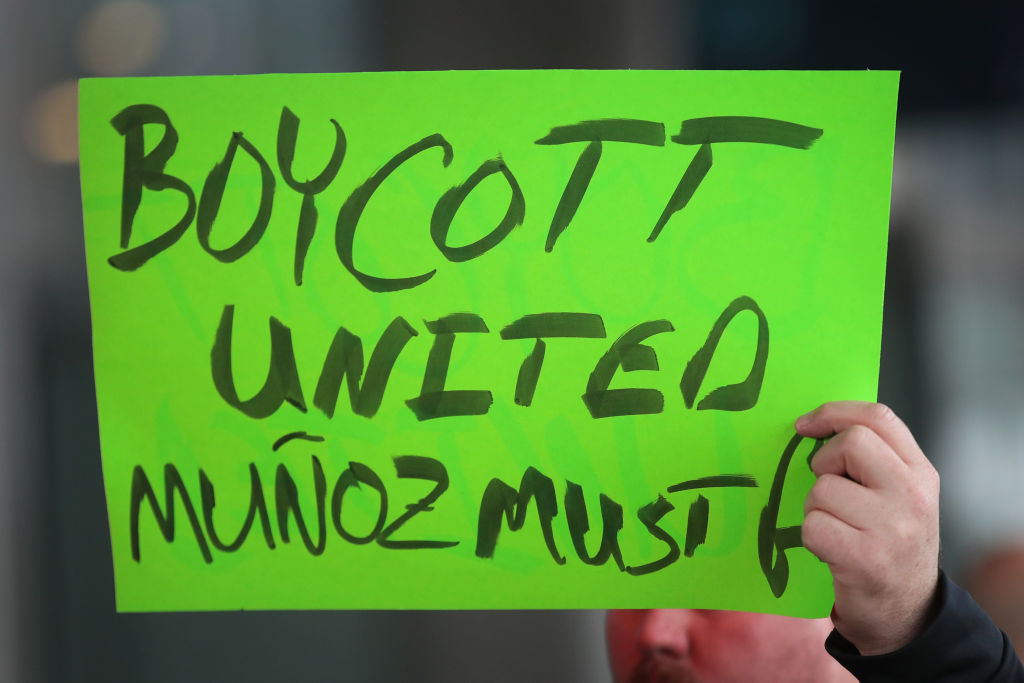The French have their uses, don’t they? They offer us their food, their wine and their bankers, and they also offer some reassurance. No matter how demented our politics may seem, things are never quite as dramatic, as emotional, as they are over the Channel. The best Britain offers Nigel Farage is an embarrassed slap on the back in the hope he’ll move down the bar to tell his war stories to someone else; the French are considering making Marine Le Pen head of state.
As if that wasn’t mad enough, they’re now taking Jean Luc Melenchon, the Gallic Chavez, seriously, or at least seriously enough to ruffle the markets. More proof of a very French romantic attachment to state socialism? Perhaps. Or perhaps there’s something else going on here. Something newer, and relevant to Britain and its awful opposition leader.
Within Jeremy Corbyn’s broad sweep of awfulness it’s important – but sometimes difficult – to identify individual strands of awfulness. There’s intellectual awfulness: the commitment to policies that would either fail or cause harm. There’s moral awfulness: the abject refusal to condemn anyone opposed to the American-led Western order, whether it’s tyrants gassing children, or Ken Livingstone. And then there’s incompetent awfulness. He’s just no good at running things. His office is a shambles, his frontbench a joke and his party dysfunctional. Voters see this clearly, which is why he can never be PM. This is good. Because here’s an awkward fact about Corbyn, or rather, about his message. It could actually be quite popular. And that would be bad.
Psychologists long ago identified the ‘halo effect’, where an attractive person’s attractiveness makes us think better of them in other regards: we think pretty people are more clever and more honest. In politics, this generally works in reverse. Tell a voter that a policy they like is actually the work of a politician they dislike and they recoil from it. Corbyn’s negative halo is huge: he turns people off policies they would otherwise support, simply by being associated with them. His plan to put VAT on school fees was a case in point: many more voters would support it – if it was proposed by someone else.
This matters, because it means we can’t dismiss his policies the way we can dismiss him as a potential prime minister. Corbyn is no friend of markets or the businesses that operate in them. He’d like the state to take more power, and more money, to make a ‘complete break’ from a system rigged in favour of big business and against ordinary people. As someone who believes that successful and responsible businesses are an engine of economic and social liberation, it pains me to note that some companies are going above and beyond to make Corbyn’s arguments for him.
Never mind that United Airlines’ spectacular act of passenger-abuse took place in Chicago, the reasons it resonated are universal. It was the perfect embodiment of how many customers feel in their dealings with big companies: powerless to resist, and potentially subject to violent misuse. It’s obviously of a lesser order of magnitude, but who hasn’t tried to quibble over rising bills for dismal broadband or incomprehensible electricity charges, only to run into the smiling fist of ‘customer services’?
How are we supposed to respond to supermarkets’ stealth pricing or utility firms that reward loyal customers with higher prices? Of course, we *could* track every price for every good, and switch our accounts every fortnight; but who has the time and effort? Easier to concede defeat to suppliers’ attritional tactics. This is how markets stop working for the people in them, and how political support for those markets slips away.
Never mind quoting the stats on real wages or the Gini coefficient, the issue here is the simmering sense of impotence and injustice that many people *feel* in their economic lives. They feel ripped off, that the game isn’t fair – and fairness, the idea that we all have at least a chance of winning, is very, very important in Britain. More so, in fact, than the subtly different idea of equality politicians spend too much time talking about.
Sensible Tories know there’s danger here. Ever since Ed Miliband rattled the Tory cage by promising his freeze on energy bills, some Conservatives have acknowledged the power of the anti-business narrative: the story of the little guy being ripped off by distant corporate interests and their rootless global owners is powerful. Just ask Donald Trump, from whom Corbyn borrowed the language of a rigged economy.
Thus ministers and No. 10 are beavering away on a Green Paper on ‘fair markets’, looking for new ways to stop consumers being tricked into subscriptions, shunted onto higher tariffs, and generally being left, to use Philip Hammond’s words, feeling like the ‘dice are loaded’.
The Government is not alone in this. If the editor will forgive a little self-promotion, the think-tank I run is thinking hard about this too: as the original advocates of fair markets, our job is to come up with ways to give consumers more power and more information, to make them feel that markets work for them, not against them. To defend the market from Jeremy Corbyn and United Airlines.
Anger about unfair markets is blinding some people to the virtues of sustainable, sensible markets. The annual Edelman Trust Barometer shows that just 33 of Brits now trust in businesses, down from 45 per cent since last year. That’s a steep and troubling fall, and it’s happened while Britain’s leading critic of business and markets has been a shambling voter-repellent from Islington. Now imagine what a charismatic and competent anti-market populist could do, and see why the job of making markets fair is so urgent.
James Kirkup is Director of the Social Market Foundation







Comments